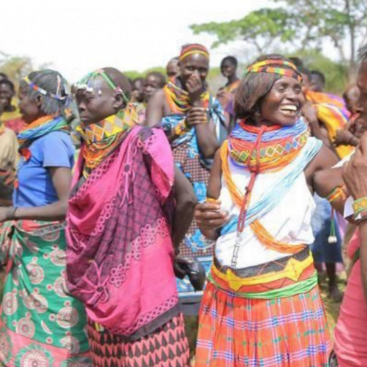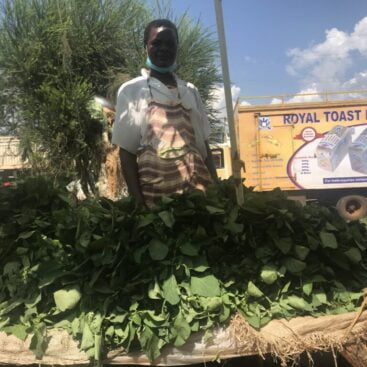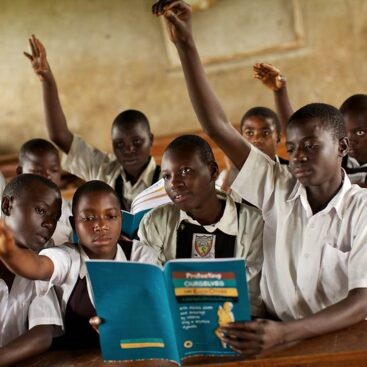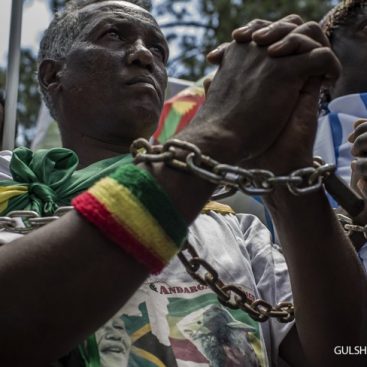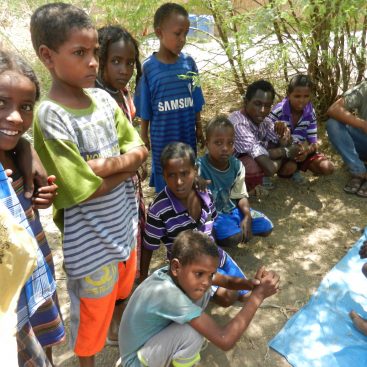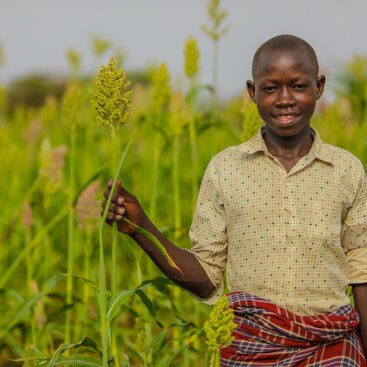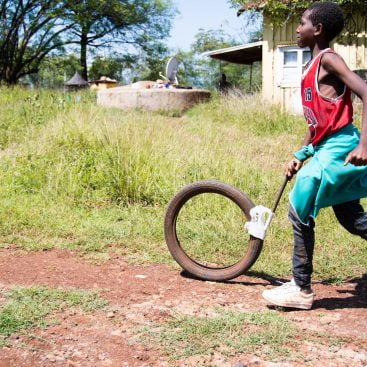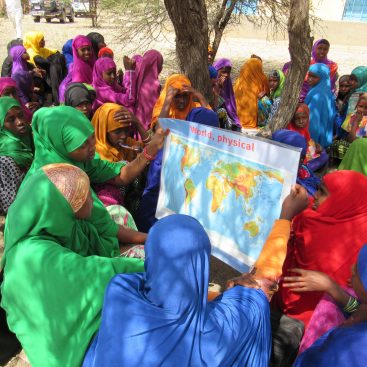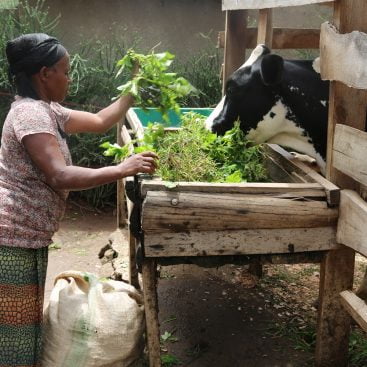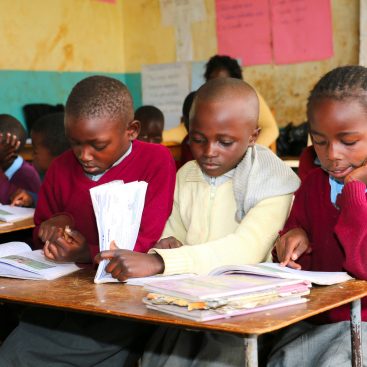Research Team
PI:

Dr. Stacey L. Connaughton
Professor, Brian Lamb School of Communication & Director, Purdue Policy Research Institute
Purdue University
Co-Pi:

Gary Burniske
Assistant Director for Program Development, International Program in Agriculture (IPIA)
Purdue University
Co-Pi:

Dr. Seungyoon Lee
Associate Professor, Brian Lamb School of Communication
Purdue University
Co-Pi:

Dr. Zemelak Ayitenew Ayele
Associate Professor of Law & Director of the Centre for Federalism and Governance Studies (CFGS)
Addis Ababa University
Embedded Research Translation Lead:
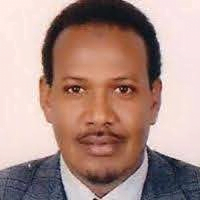
Dr. Ali Ahmed Abdi
Executive Director
Aged and Children’s Pastoralists Association
Supporting Partner(s):

Dr. Livia Rohrbach
Regional DME Officer – Horn of Africa & Sudans
Search for Common Ground
Project Information
Title of Project: A systems, networks, and human-centered design approach to assessing the resilience of Ethiopian communities experiencing recurring violent conflict shocks.
Sector: Working in Crisis & Conflict
Country: Ethiopia
Lead Institution: Purdue University
Co-PI Institution: Addis Ababa University
Partner(s): The Aged and Children Pastoralists Association; Search for Common Ground
Final Budget: $245,322
Project Length: 18 months
Research Objective:
Our purpose in this collaborative research endeavor is to co-design a framework for assessing community resilience with participating communities that are facing recurring and potentially compounding shocks. We will co-design and test a measure of community resilience (Section 2.2 of the RFA) to violent conflict that considers the complexities and interdependencies in these two constructs, and which considers gender throughout the design and implementation. Our approach builds on existing resilience frameworks and empirical work on measuring individual and household resilience which emphasize the multiple dimensions of shocks, vulnerabilities, and resilience capacities. We will assess how interrelated shocks and vulnerabilities are experienced differently by sociodemographic groups, including women and youth. By taking systems and network perspectives, we pay particular attention to the patterns of connectedness (e.g., resource sharing, information flow) among system components which reflect absorptive, adaptive, and transformative capacities. Social network analysis can reveal structures of connectivity to show strengths and weaknesses in resilience capacities such as the presence of marginalized groups, overdependence on particular resources, and mistrust or oppositions among sociodemographic and institutional groups. By drawing on principles of human-centered design and taking a community-centered approach, we incorporate qualitative assessments of peacebuilding and conflict resolution capacities as they relate to resilience. Considering the interconnections among components of a larger system can also help understand how some aspects of resilience capacities may compete with each other, such as the migration of pastoralists to sedentary farming communities that may have both positive and negative impact on outcomes in various areas such as agricultural production, food security, health, climate, and education.
Project Description:
Ethiopia’s development as a middle-income country is challenged by severe concurrent and recurring system shocks. Extreme weather events tied to climate change, forced migration, famine, and violent conflict. Ethiopian actors, supported by the international community, are building resilience to address these shocks and to alleviate the suffering experienced by Ethiopian women and men and their communities. But there remains a pressing need to enhance the effectiveness of development assistance by incorporating scientifically sound and locally contextualized measures of community resilience. Our team will bring its history of working with local communities on conflict prevention and post-conflict reconciliation in Ethiopia to this development challenge. We have found that community resilience to violent conflict is fundamental to prevention and reconciliation processes. We have also come to realize that conflict drivers such as food insecurity, limited access to resources, and other health, environmental, cultural, and social and political factors — are interrelated. Our prior work in Ethiopia shows that all shocks are nestled in a complex system of recurring shocks and factors.
Our purpose is to co-design a framework for assessing community resilience. Importantly, we will do so with communities that are facing recurring and compounding shocks. We build on existing resilience frameworks and assess the interdependencies among varying types of shocks and stressors (Saraga, 2018) as well as multiple dimensions of resilience capacities (Béné, C., 2018; Vaughan, 2018). We do so in the specific context of violent conflict shocks. We extend existing frameworks by taking an approach grounded in systems thinking, networks science, and human-centered, participatory, and gender sensitive design. We will co-design and test a measure of community resilience (Section 2.2 of the RFA) to violent conflict that considers the complexities and interdependencies in these two constructs, and which considers gender throughout the design and implementation. We will assess how interrelated shocks and vulnerabilities are experienced differently by sociodemographic groups, including women and youth. Both large-scale datasets and community knowledge are important for translational research on resilience. Thus, we will integrate analyses of secondary data and quantitative and qualitative field data in two Ethiopian communities. Specific indicators of resilience will be adapted to the unique community contexts and co-created with community members.
Embedded Research Translation Product:
Our products are tailored to specific audiences and they utilize various communication channels appropriate to the local context. The translated products are:
- Training guidebook and materials for practitioners (INGOs and civil society organizations) who are working with local communities.
- A method for evaluating our training approach and training materials for USAID practitioners (INGOs and civil society organizations).
- A workshop for civil society organizations in Ethiopia working in this region that trains them on the community resilience framework and how to use it.
- A workshop for Ethiopian policymakers and government that trains them on the community resilience framework and how to use it.
- A workshop for community members on monitoring and evaluation on conflict resilience indicators.
- Policy briefs based on the research findings for policymakers in Ethiopia and those in the international development community including USAID, including recommendations for how the research findings may be incorporated into federal, regional, and local policy in Ethiopia. The policy briefs will be accessible via the Purdue Policy Research Institute website. We will draw people to them via Purdue, Search, Addis Ababa, and ACPA social media outlets.
- A “Blogging-from-Ethiopia” series chronicling our research process, community engagement, and lessons learned. Team members will write and post these blogs on the PPRI blog site at various points during the project lifecycle.
- Short articles with lessons learned doing this research and key research findings published in practitioner publications (i.e., Diplomatic Courier; Global Food Security, Disasters, Political Violence @ A Glance). These are designed for practitioner and policymaker audiences worldwide. We will draw readers to these articles via Purdue, Search, Addis Ababa, and ACPA social media outlets.
- A white paper/technical report to be posted on Search’s website and DM&E For Peace learning platform and website, the Purdue Policy Research Institute website, the Center for Global Food Security website, and Addis Ababa University CFGS website, all after receiving approval from LASER PULSE.
- Research outputs, datasets, relevant information and success stories will also be shared on LASER PULSE website (laserpulse.org)
- Based on the training guidebook we aim to produce, we will conduct a workshop on resilience with the local communities we engage with. In addition to this, we will organize a 3-day training on Search’s Common Ground Approach (CGA), which builds on the core insights of Search’s work since its creation in 1982 and reflects learnings from our work across the world aimed at transforming conflict by building collaborative relationships across dividing lines.
Embedded Research Translation Audience:
We will identify relevant audiences by drawing on our professional networks in Ethiopia, Africa, and globally. Our team has worked closely with the international donor community (particularly USAID), governments, civil society, and community organizations worldwide. We will grow our reach by asking those in our networks who in their networks would benefit from our products. These will become our relevant audiences.

